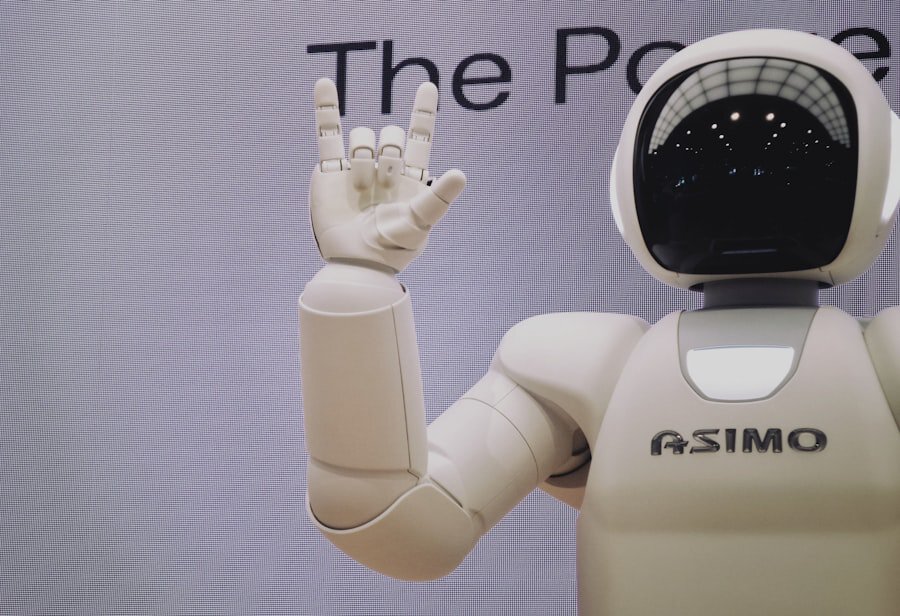Artificial Intelligence (AI) is a field of computer science focused on creating intelligent machines capable of performing tasks that typically require human intelligence. These tasks encompass learning, reasoning, problem-solving, perception, and language understanding. AI has the potential to revolutionize various aspects of life and work, with applications spanning healthcare, finance, transportation, and entertainment.
While the concept of AI has existed for decades, recent technological advancements have propelled it to the forefront of innovation and development. AI systems are categorized into two main types: narrow AI and general AI. Narrow AI, also referred to as weak AI, is designed for specific tasks such as speech recognition or image classification.
General AI, a more advanced form, can understand, learn, and apply knowledge across a broad range of tasks. Narrow AI is already widely used in various industries, while general AI remains in early developmental stages. As AI continues to evolve, it has the potential to significantly impact society and daily life.
The transformative potential of Artificial Intelligence extends to numerous industries, promising improved efficiency and productivity. AI can automate repetitive tasks, provide personalized recommendations, streamline processes, and enhance decision-making. However, these advancements also raise ethical concerns and potential risks that require careful consideration.
As AI technology progresses, it is crucial to evaluate its advantages and disadvantages, as well as its impact on various aspects of society.
Key Takeaways
- Artificial Intelligence (AI) refers to the simulation of human intelligence in machines that are programmed to think and act like humans.
- Advantages of AI include increased efficiency, improved decision-making, and the ability to handle repetitive tasks.
- Disadvantages of AI include job displacement, potential for errors, and the ethical implications of AI decision-making.
- Ethical concerns surrounding AI include issues of privacy, bias in algorithms, and the potential for misuse of AI technology.
- AI’s impact on the job market includes the potential for job displacement and the creation of new job opportunities in AI-related fields.
- AI plays a significant role in healthcare and medicine, including disease diagnosis, personalized treatment plans, and drug discovery.
- The future of AI holds potential risks such as loss of human control, increased inequality, and the potential for AI to be used for malicious purposes.
The Advantages of Artificial Intelligence
Increased Efficiency and Productivity
AI systems can perform repetitive tasks at a much faster rate than humans, freeing up time for employees to focus on more complex and creative work. This can lead to cost savings for businesses and allow them to allocate resources more effectively.
Data Analysis and Insights
In addition, AI can analyze large amounts of data and identify patterns and insights that may not be apparent to humans. This can help businesses make more informed decisions and improve their overall performance.
Personalization and Enhanced User Experience
Another advantage of AI is its ability to personalize experiences for users. AI-powered systems can analyze user data and behavior to provide personalized recommendations and content. This can be seen in applications such as streaming services, e-commerce platforms, and social media, where AI algorithms are used to recommend products, movies, or content based on individual preferences. This not only enhances the user experience but also increases engagement and customer satisfaction.
Improved Healthcare Outcomes
Additionally, AI has the potential to improve healthcare outcomes by analyzing patient data to identify potential health risks and recommend personalized treatment plans.
The Disadvantages of Artificial Intelligence

While Artificial Intelligence offers many advantages, there are also several disadvantages that need to be considered. One of the main concerns surrounding AI is the potential for job displacement. As AI systems become more advanced, there is a risk that they will replace human workers in certain industries.
This could lead to unemployment and economic instability for those who are unable to adapt to the changing job market. Additionally, there are concerns about the ethical implications of AI, particularly in areas such as privacy and security. As AI systems become more integrated into our daily lives, there is a risk that they could be used to manipulate or exploit individuals’ personal information.
Another disadvantage of AI is the potential for bias in decision-making. AI systems are trained on large datasets, which may contain biases or inaccuracies that can impact their decision-making processes. This can lead to unfair outcomes in areas such as hiring, lending, and criminal justice.
Additionally, there are concerns about the potential for AI systems to be hacked or manipulated, leading to security breaches and data theft. As AI continues to advance, it is important to address these disadvantages and develop strategies to mitigate their impact on society.
Ethical Concerns Surrounding Artificial Intelligence
The rapid advancement of Artificial Intelligence has raised ethical concerns regarding its impact on society. One of the main ethical concerns surrounding AI is the potential for bias in decision-making. AI systems are trained on large datasets that may contain biases or inaccuracies, which can lead to unfair outcomes in areas such as hiring, lending, and criminal justice.
This has raised concerns about the need for transparency and accountability in AI algorithms to ensure that they do not perpetuate existing biases or discrimination. Another ethical concern surrounding AI is the issue of privacy and data security. As AI systems become more integrated into our daily lives, there is a risk that they could be used to manipulate or exploit individuals’ personal information.
This has raised concerns about the need for robust data protection laws and regulations to safeguard individuals’ privacy rights. Additionally, there are concerns about the potential for AI systems to be hacked or manipulated, leading to security breaches and data theft. It is important for organizations to prioritize cybersecurity measures and ensure that AI systems are secure and resilient against potential threats.
The Impact of Artificial Intelligence on the Job Market
The impact of Artificial Intelligence on the job market is a topic of significant concern and debate. While AI has the potential to automate tasks and processes, leading to increased efficiency and productivity, there is also a risk that it will replace human workers in certain industries. This could lead to unemployment and economic instability for those who are unable to adapt to the changing job market.
However, it is important to note that AI also has the potential to create new job opportunities in emerging fields such as data science, machine learning, and robotics. As AI continues to evolve, it is important for organizations and policymakers to develop strategies to mitigate the potential impact on jobs. This may include investing in retraining programs for workers whose jobs are at risk of automation, as well as promoting lifelong learning and skills development.
Additionally, there is a need for collaboration between industry leaders, policymakers, and educators to ensure that the workforce is prepared for the changes brought about by AI. By addressing these challenges proactively, it is possible to minimize the negative impact of AI on the job market and create new opportunities for economic growth.
The Role of Artificial Intelligence in Healthcare and Medicine

Personalized Treatment Plans
AI can also personalize treatment plans by analyzing individual patient data and recommending tailored interventions based on specific health needs. This personalized approach can lead to more effective treatment outcomes and improved patient satisfaction.
Remote Monitoring and Predictive Analytics
In addition to diagnosis and treatment, AI can improve patient care through remote monitoring and predictive analytics. AI-powered systems can analyze patient data in real-time to identify potential health risks and provide early interventions, reducing hospital readmissions and improving overall patient outcomes.
Streamlining Administrative Processes
Furthermore, AI has the potential to streamline administrative processes in healthcare facilities, leading to increased efficiency and cost savings. As AI continues to advance, it is essential for healthcare providers to embrace this technology and leverage its potential to improve patient care.
The Future of Artificial Intelligence and Its Potential Risks
The future of Artificial Intelligence holds great promise for innovation and advancement across various industries. However, it also comes with potential risks that need to be carefully considered. One of the main risks associated with AI is the potential for job displacement as automation becomes more prevalent in certain industries.
This could lead to unemployment and economic instability for those who are unable to adapt to the changing job market. Additionally, there are concerns about the ethical implications of AI, particularly in areas such as privacy and security. Another potential risk of AI is the impact on social inequality.
As AI continues to advance, there is a risk that it could exacerbate existing social inequalities by favoring those with access to advanced technology and skills. This could widen the gap between those who benefit from AI advancements and those who are left behind. Additionally, there are concerns about the potential for misuse of AI technology for malicious purposes such as surveillance or warfare.
It is important for organizations and policymakers to address these risks proactively and develop strategies to mitigate their impact on society. In conclusion, Artificial Intelligence has the potential to revolutionize the way we live and work by improving efficiency, productivity, and decision-making across various industries. However, it also comes with ethical concerns and potential risks that need to be carefully considered.
As AI continues to advance, it is important for organizations, policymakers, and society as a whole to address these challenges proactively and develop strategies to ensure that AI technology is used responsibly and ethically. By doing so, we can harness the full potential of AI while minimizing its negative impact on society.
If you’re interested in the potential impact of artificial intelligence on education and learning, you may want to check out this article on Metaversum.it that discusses the role of metaverse platforms in the education industry. The article explores how the metaverse can be used as a tool for immersive and interactive learning experiences, and it also delves into the challenges and opportunities of integrating the metaverse with traditional educational practices. (source)
FAQs
What are the pros of artificial intelligence?
Artificial intelligence has the potential to improve efficiency, accuracy, and productivity in various industries. It can also help in automating repetitive tasks, making data-driven decisions, and enhancing customer experiences.
What are the cons of artificial intelligence?
Some of the potential drawbacks of artificial intelligence include job displacement, ethical concerns, privacy issues, and the risk of bias in decision-making processes. There are also concerns about the potential misuse of AI technology for malicious purposes.











Leave a Reply